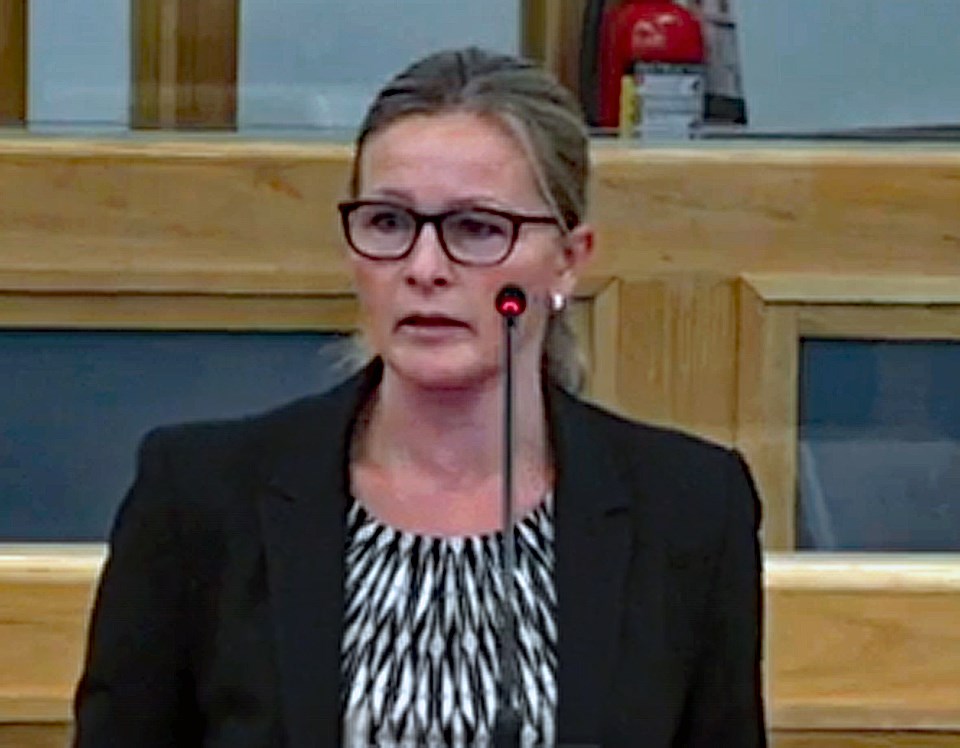SASKATOON — Residents in Saskatoon who do not join the green cart program will be charged for the additional utility bill whether or not they use it and will have to wait until the fall of this year to opt out of the program as it will be enforced city-wide.
The initiative is set to be implemented this year, with green bins already delivered to some residents and collection expected to start in mid-April.
The green bin is for compostable wastes, such as food scraps like meat, bones, dairy, and yard waste. Starting in May, $6.73 a month will be added to residents' utility bills. The program can divert up to 20,000 tonnes of waste, reducing pressure on the city landfill.
According to City Utilities and Environment Division General Manager Angela Gardner, a significant amount of waste thrown into the garbage could be turned into compost material based on their waste audit.
Gardner said that more than 50 per cent of the trash in the black bin could be transitioned to green bins.
“There is a lot of misinformation where it [green bins] is only for yard waste and [some] do not feel they have a large yard. That is part of our communication and education strategy is trying to make sure people are aware of what can go in the green bins instead of the black bins,” said Gardner.
The program will provide year-round waste collection and an indoor facility will turn the waste into compost. Gardner added that the green cart program is not only for yard waste but also for food scraps. Gardner reminded the community that the fee is mandatory and will be charged primarily for single-family homes.
She added that city crews delivering the green carts would only remove the bins if the residents received them. The city will develop a program for people who want to avoid the cart in the fall.
While some residents are reluctant to participate in the program, Gardner said that waste diversion is a community issue that needs everyone's cooperation. She also mentioned that residents in other municipalities who opposed the green cart program changed their minds after a few months.
“There are a few scenarios we are working through with residents refusing the bins or not wanting them now. Just taking a step back, the curbside organics program was approved as mandatory for all residents,” said Gardner.
“As we were developing the program, we had discussions with other municipalities and their experience has shown that while there is an initial pushback from some residents, once they see the benefits, many people turned around,” said Gardner.
Gardner asked the community to try the program first to see the benefits it would bring to the city landfill and reminded city crews delivering the green carts would only take back the bins if the residents received them.
“At this time, we are not taking any carts back. We want the people to get through this summer and get a feel for it. [Starting in fall] we will be developing a program for people who do not want the cart,” said Gardner.
“The fee is a requirement. It is a mandatory fee that will be on the utility bill. So, even if they do not want to participate in the program, they will be charged primarily for single-family homes.”
Residents who live in townhouse-type dwelling spaces and want to participate in the city-wide composting program will have smaller bins since they have little room for three bins – garbage, recycle, and compost.
She added that smaller bins would be provided to residents who live in townhouse-type dwelling spaces and want to participate in the city-wide composting program since they have little room for three containers—garbage, recycle and compost.
“We have made provisions and counsel provided direction for smaller bin sizes. We also hear that they sometimes do not need that many carts. They still want to participate, but they do not have the space,” said Gardner.
“So, we are working through those case-by-case and reviewing the specific situations. Over the next month will be working through the boards of those properties [townhouses and condominiums] on how to proceed.”




